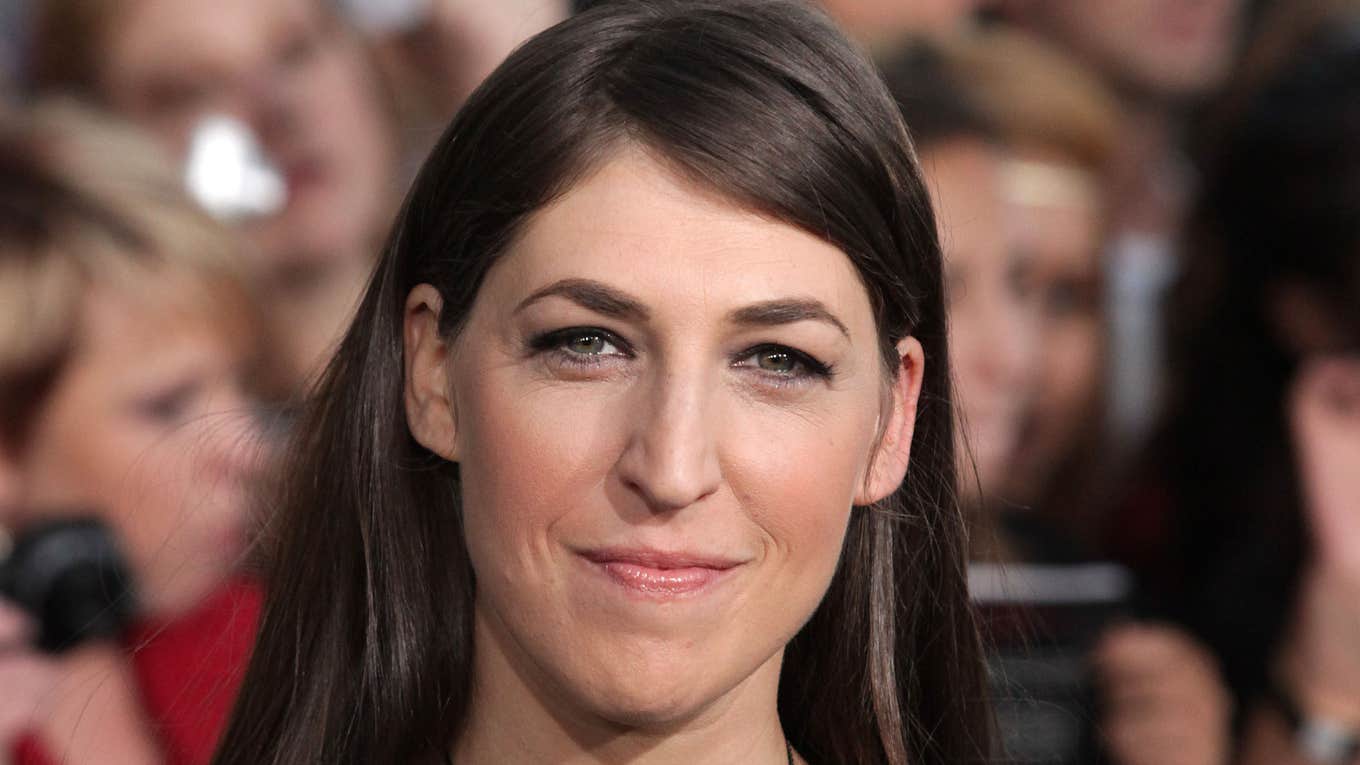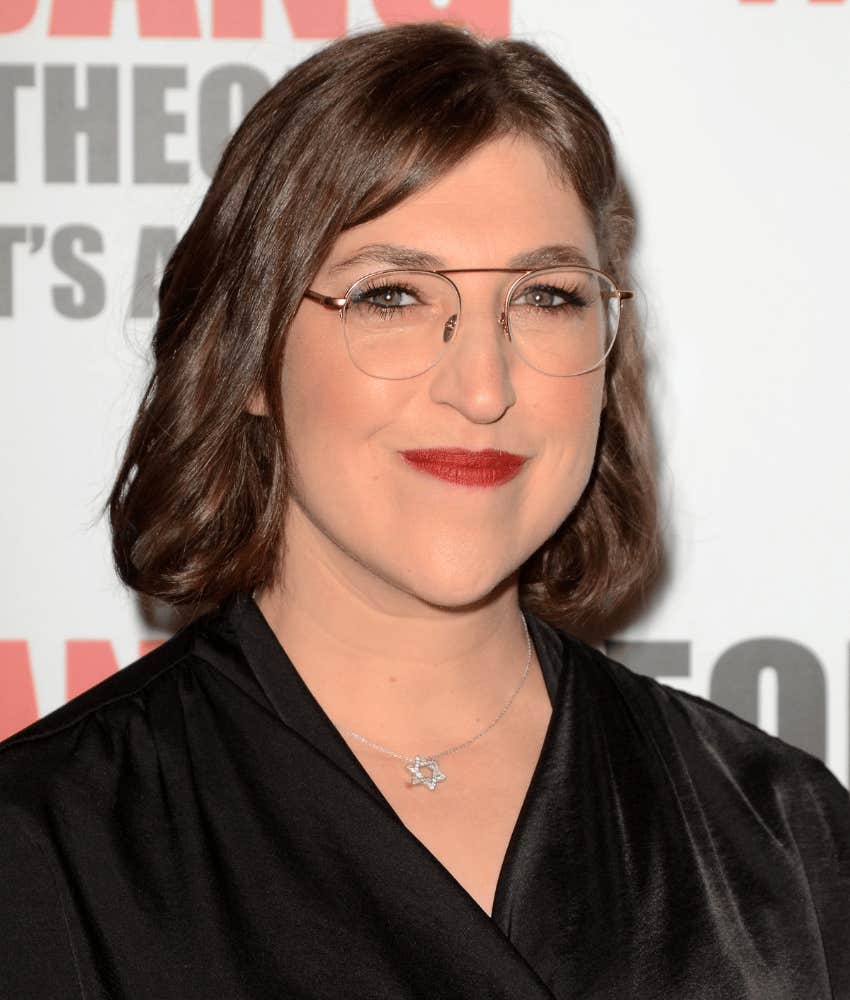Mayim Bialik Shares The 5 Relatable Things She Does For Her Mental Health That Other People Think Are Rude
She puts herself first.
 DFree | Shutterstock
DFree | Shutterstock Self-care is so much more than facemasks and bubble baths. Taking care of ourselves on a consistent basis requires us to pay attention to more than just how we’re relaxing. It requires us to focus on how we show up for ourselves and what we do — and don’t do — to give ourselves a daily sense of calm.
Celebrities are no exception. The former host of "Jeopardy," Mayim Bialik, took to TikTok to share how she prioritizes her mental health through self-care.
Mayim Bialik shared 5 ways she prioritizes her mental health that she said can come off as rude:
1. She listens to her body’s cues
“Sometimes, I just turn off my phone and take a nap,” Bialik said.
The actress’s technique for tuning out and turning off can have major benefits, as sleep is crucial for maintaining mental and physical health.
The American Psychological Association shared that getting enough sleep shows vast improvements in people’s memory and concentration while strengthening their immune systems. Sleep deprivation disrupts the body’s metabolism and increases levels of stress hormones.
Psychologist David Dinges discovered that people who get less than 8 hours of sleep a night exhibit cognitive and physiological deficits. They struggle to make decisions and have major lapses in memory and attention.
It’s not necessarily easy to reset our bodies, nor is it easy to just put our phones down and take a break.
Yet as Bialik models, it’s totally okay to disconnect and get the rest you need. Taking a nap can be a truly restorative way to take care of yourself.
We should all take a page from Bialik’s book and give ourselves permission to prioritize rest.
2. She limits her news intake
“I don’t always know exactly what’s going on in the news,” Bialik said. “I can’t follow it every day, and I’m not trying to be rude about it, but I can’t; it’s going to make my head explode. So, I don’t always know what’s going on in the world.”
 Kathy Hutchins | Shutterstock
Kathy Hutchins | Shutterstock
Her news consumption technique is Harvard University approved, as Albert C. Brooks, a Harvard professor and social scientist, recommends strict limits on how much time people spend consuming media.
Brooks advises setting aside 30 minutes a day for all social media intake, 15 minutes of political news coverage, and 30 minutes of reading or watching other news.
“Ideally, you set aside time to look at [social media or news coverage] for whatever reason, and then you put it aside for the rest of the day,” he said.
“The rest of the time [you can] actually be paying attention to the things that matter: the love in your life, the spirituality that you enjoy, the relationships that sustain you, and the work that you’re doing to serve other people. Then your life will get a lot happier.”
3. She sets boundaries
Another way Bailik protects her peace and inner calm is to set clear boundaries around communication.
“After 10 p.m. and before 6 a.m., I’m probably not going to be that prompt responding to texts and emails,” she said.
Work-life balance is often something we preach but don’t practice, yet Bialik shows how simple it can be to make that balance a reality.
She gives herself permission to not be reachable, because nothing in her professional life is actually that urgent after bedtime.
Career coach Elissa Lynn focuses on helping high performers in their jobs, and she highlights the need for less work-life balance and more work-life separation.
“I used to think work-life balance meant you could do work and life at the same time,” she said, sharing how she would answer work emails during dinner or answer a message from her boss while grocery shopping.
“I was logging off my computer, but I wasn’t logging off up here,” she said. “If you are still thinking about work when you’re not working, maybe technically you’re balancing, but you’re not separating.”
She shared that separating from work after clocking out lets her recharge. She “prioritized rest and stopped ruminating on work 24/7 and what do you know? My productivity skyrocketed.”
Bialik allows herself to fully separate from texts and emails during her nighttime and early mornings, which allows her to show up as her fullest self once she’s ready to do so.
4. She honors her feelings
Another self-care technique Bialik puts into practice is giving herself space and permission to have complicated emotions.
“If I’m having big feelings, I sometimes am just gonna say, ‘I’m not available for this conversation,’ and then, I’m not going to be available for that conversation until I’m not having all those big feelings,” she said.
It’s not that she’s avoiding the conversation or disregarding the need to process what’s going on with another person; she’s just doing so on her own time.
Having difficult conversations gets harder when our emotions are heightened. By giving her feelings breathing room, Bialik is then able to show up for those conversations in a better head space, give the dialogue the care and attention it deserves, and put her own needs first.
5. She respects her limits
Bialik shared a refrain she uses when dinnertime feels like too much to deal with: “We’re just gonna order in tonight, or we’re just gonna eat whatever’s in the pantry, and no one’s gonna complain about it, ‘cause that’s all I can handle.”
We all have our limits, and pushing past them can lead to major burnout. Parents, especially, can find themselves in the trenches of stress and anxiety because they’re tasked with tending to their kids’ needs on top of their own.
It’s easy for caregivers to ignore what they need and push through at full throttle, but Bialik shows that it’s really okay to stop for a moment and feed your kids a less-than-balanced meal you find in the freezer for the sake of your own sanity.
Bialik models accessible ways we can care for ourselves, even if it seems rude to other people. Yet at the end of the day, our inner peace is more important than what anyone else thinks.
Alexandra Blogier is a writer on YourTango's news and entertainment team. She covers social issues, pop culture, and all things to do with the entertainment industry.

